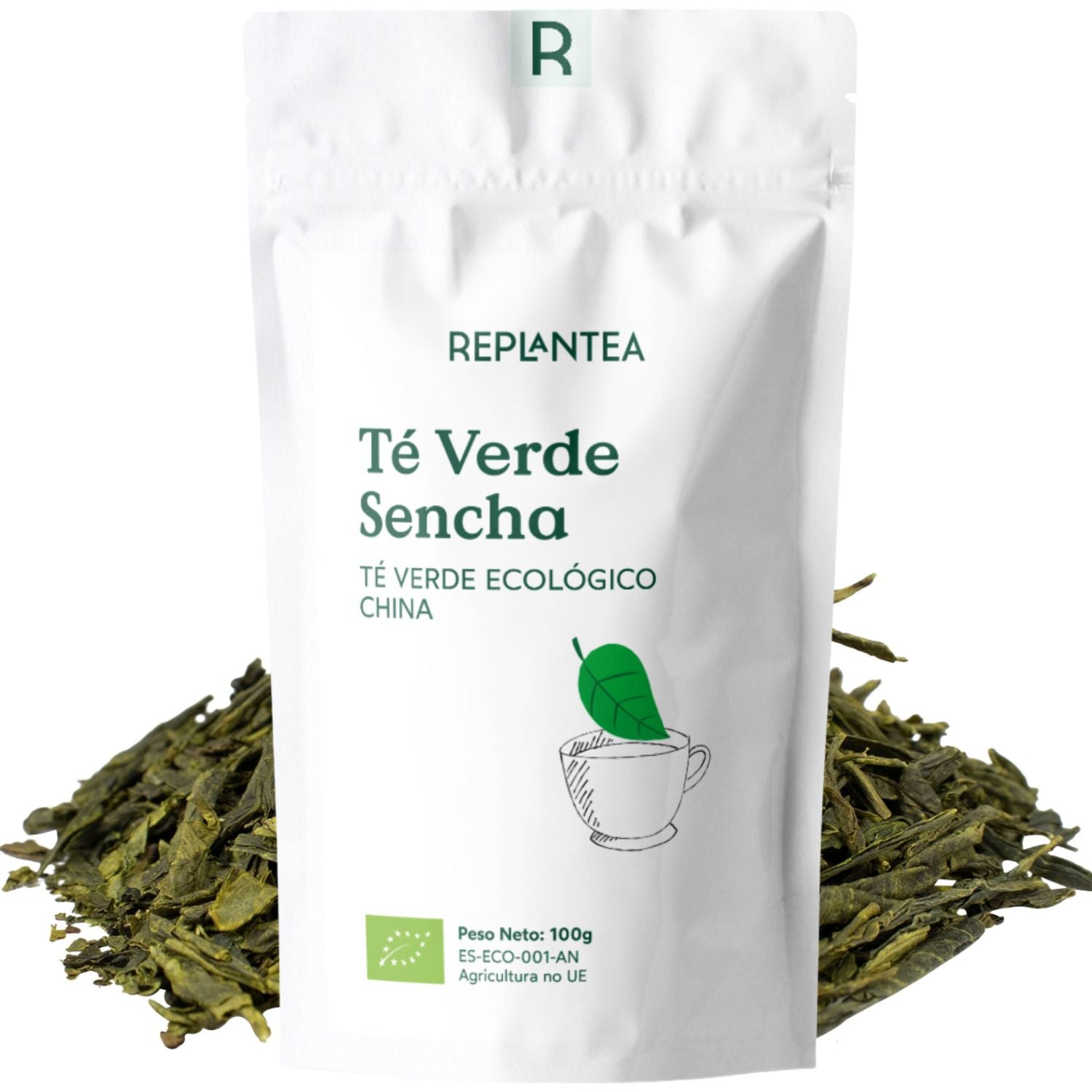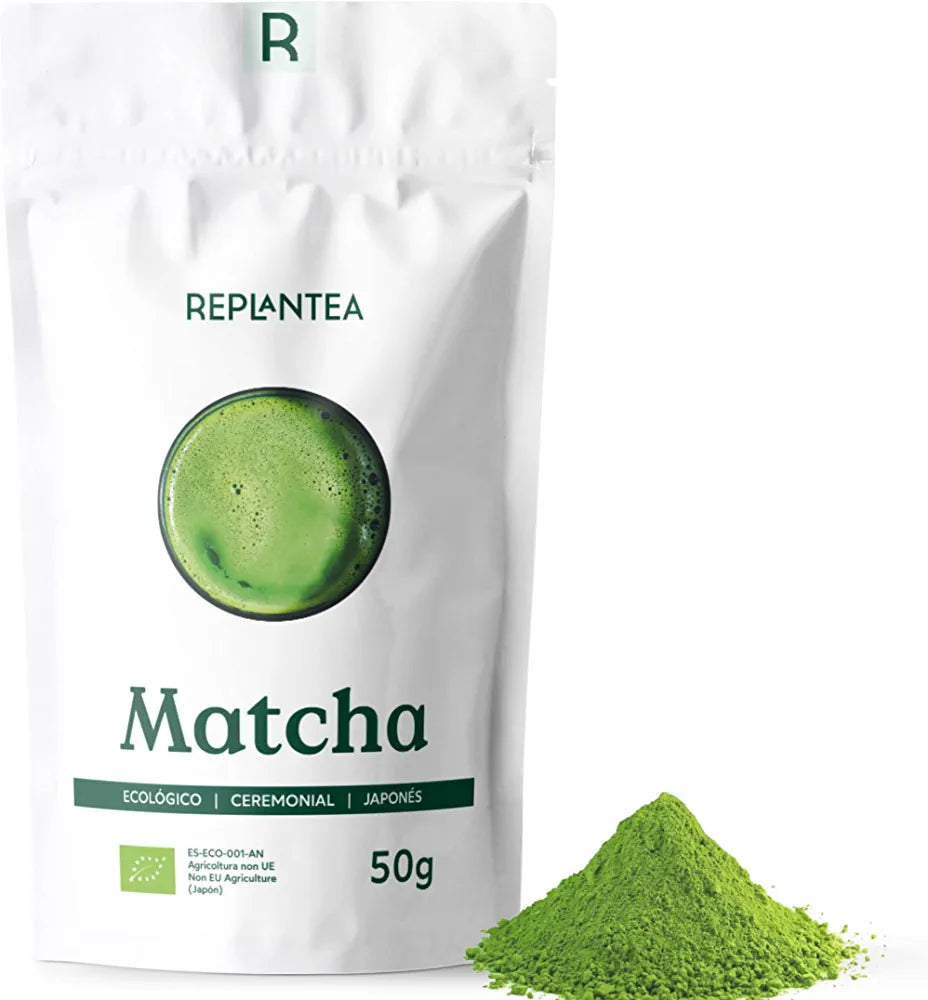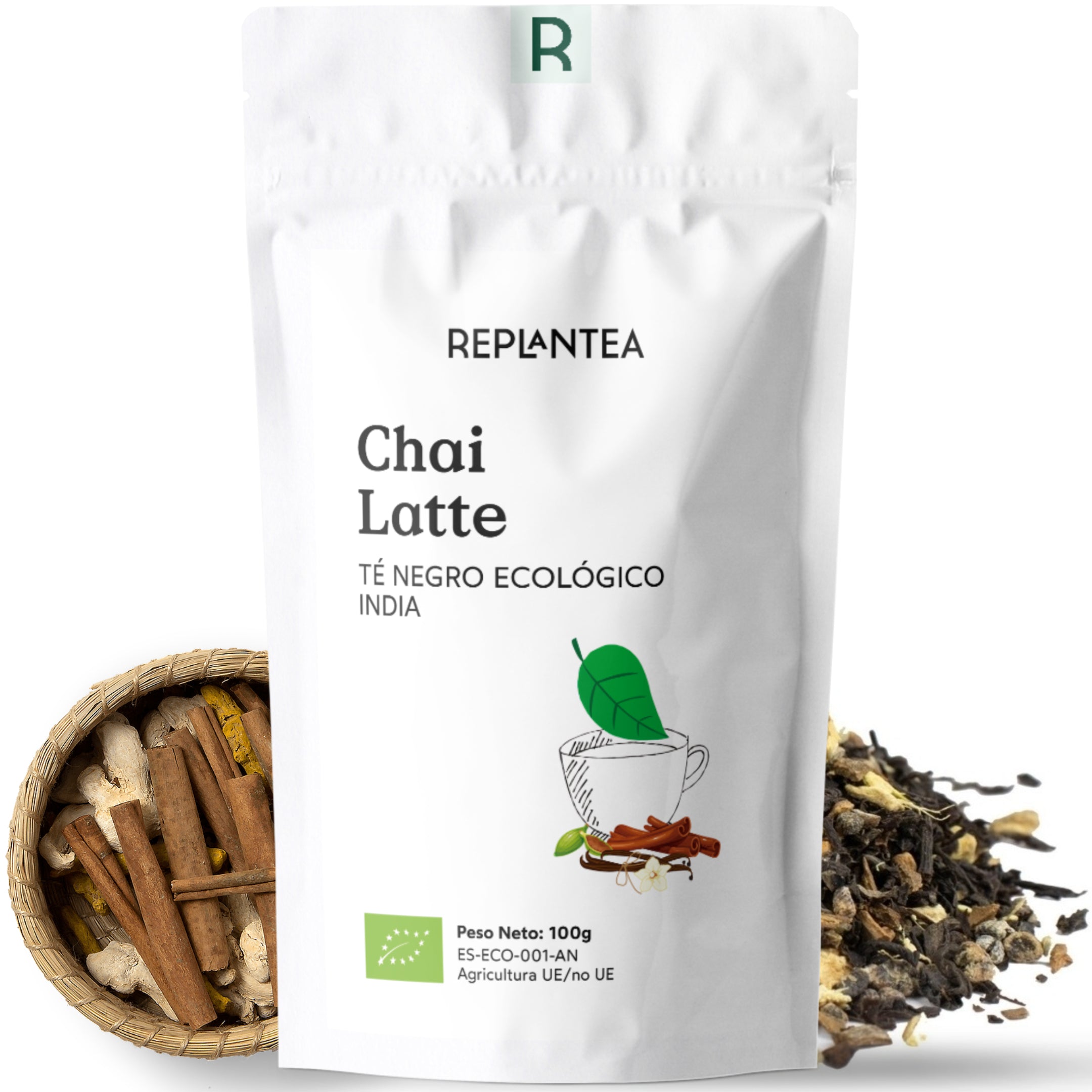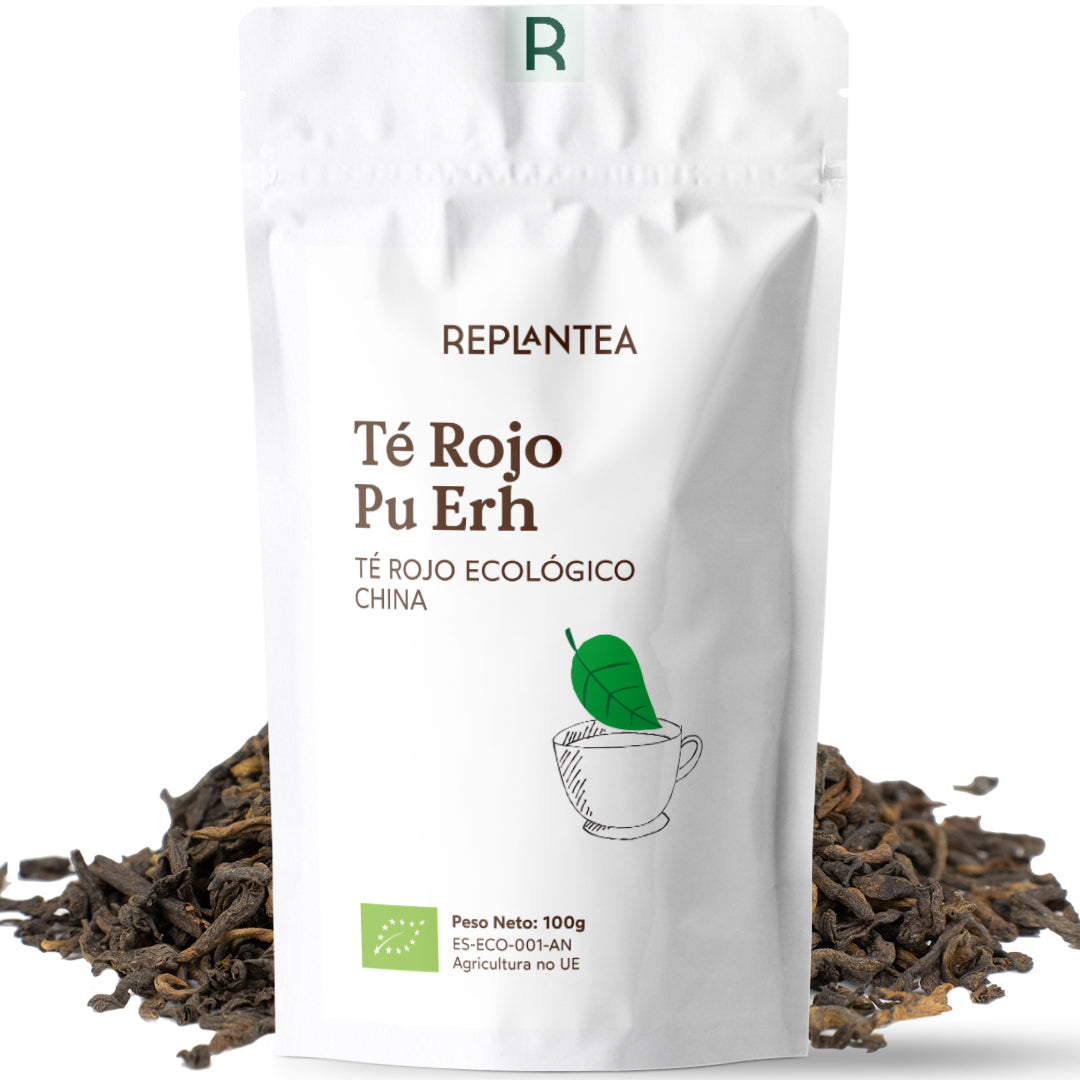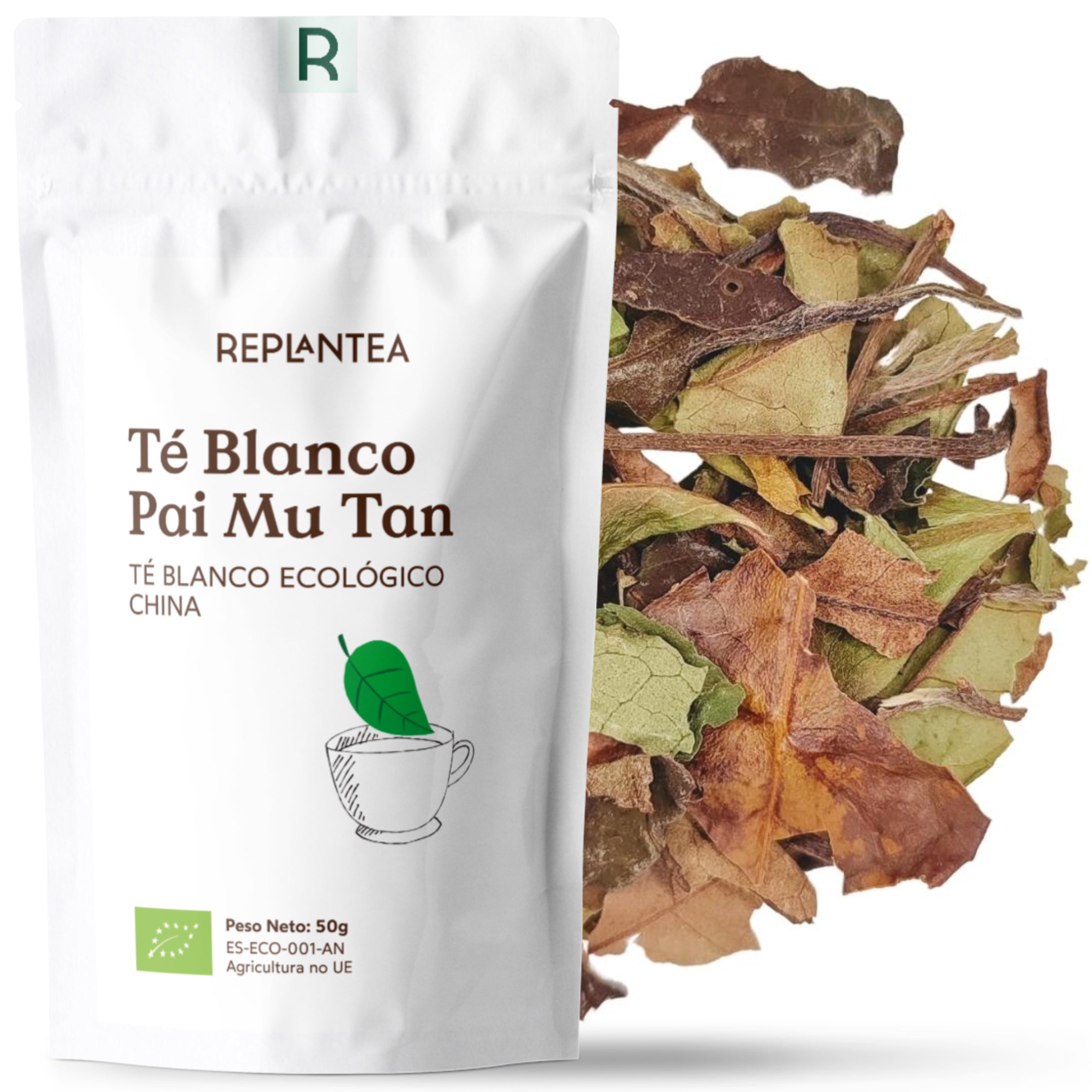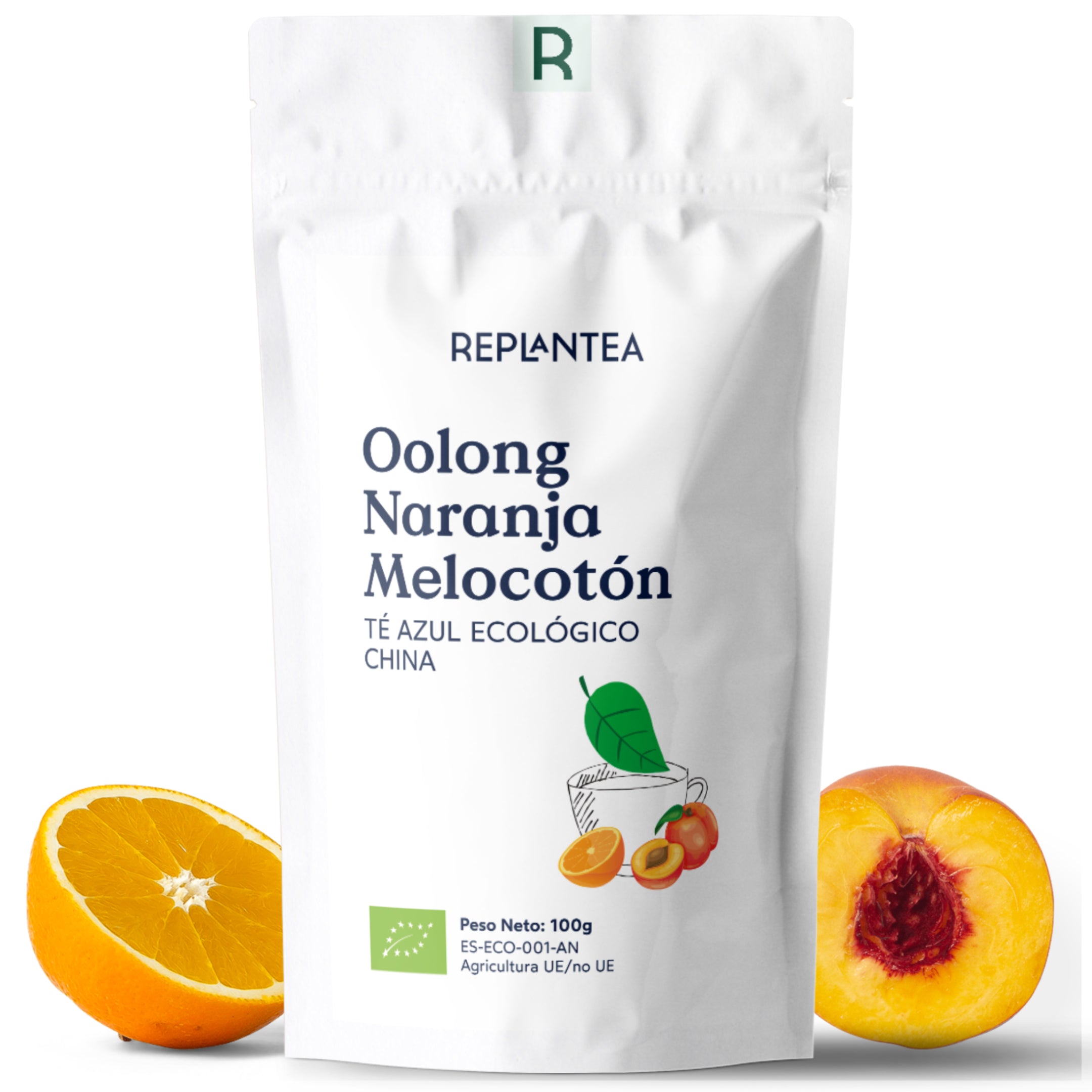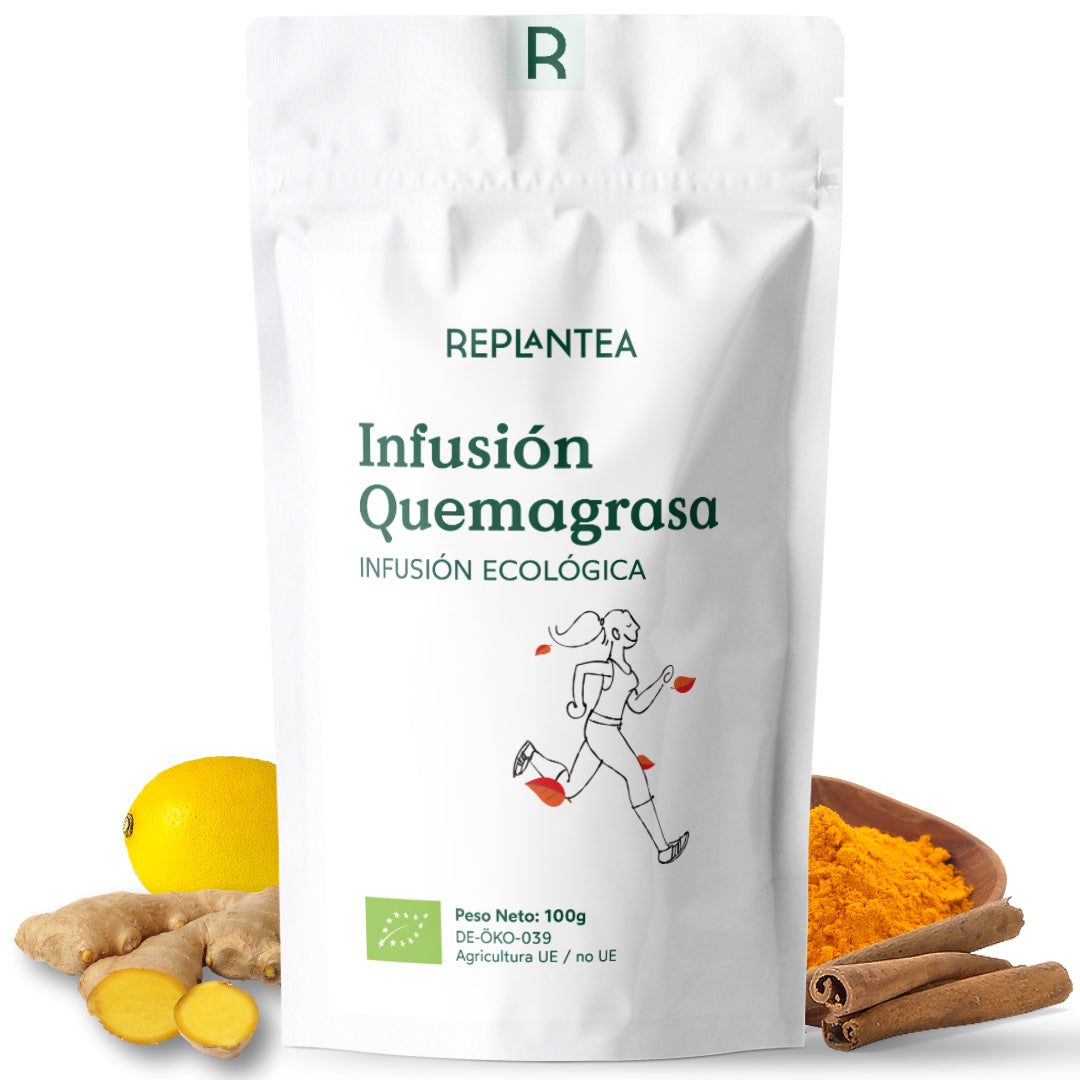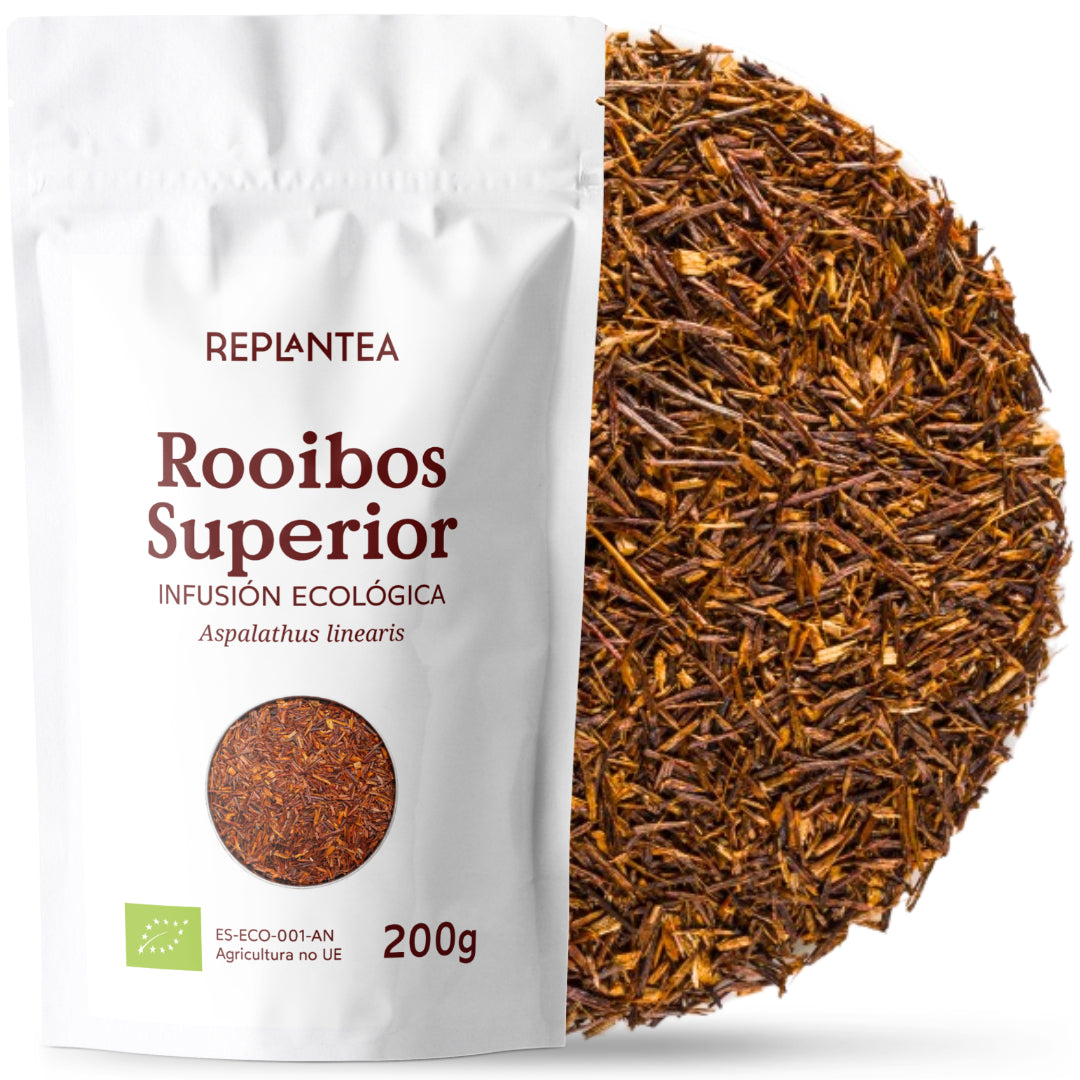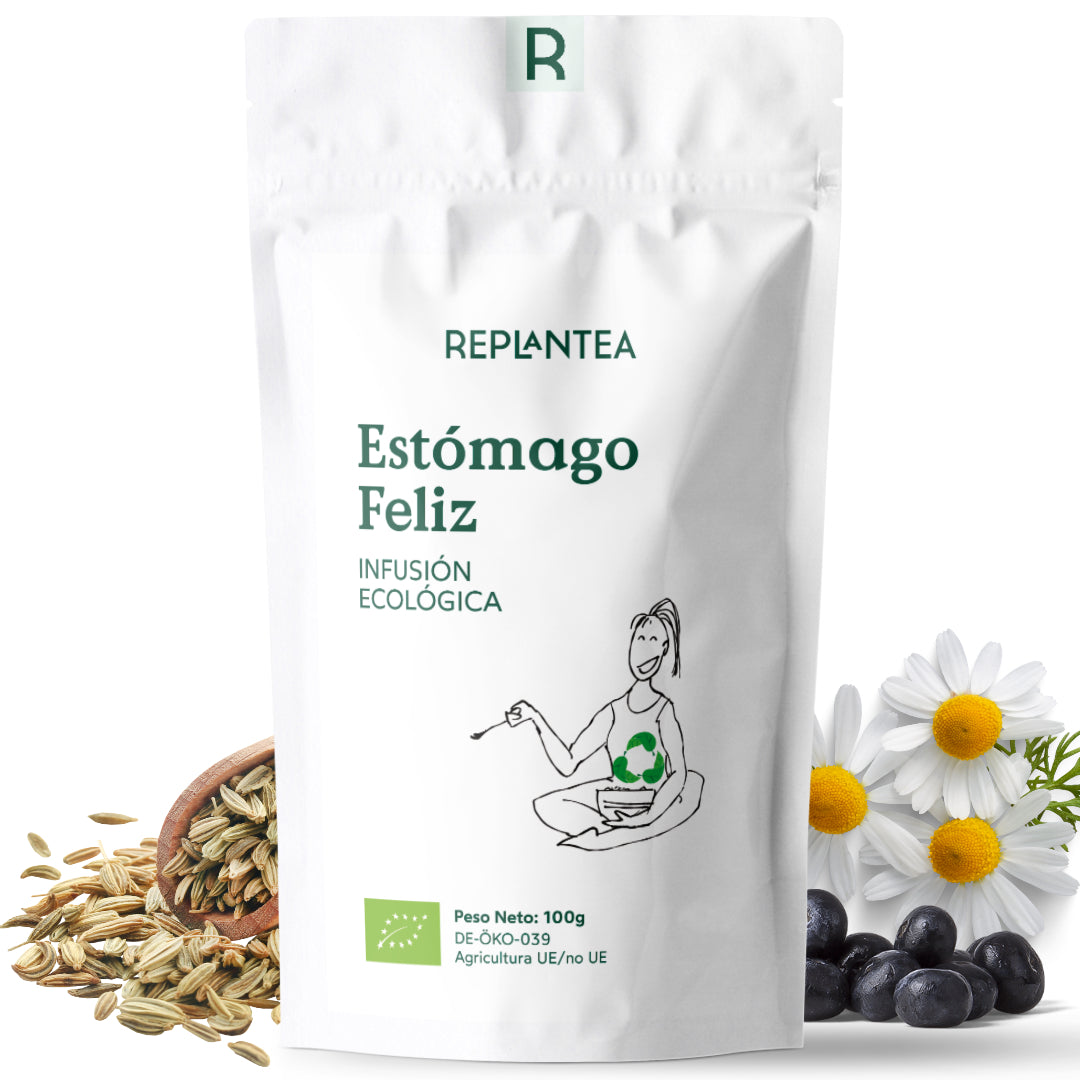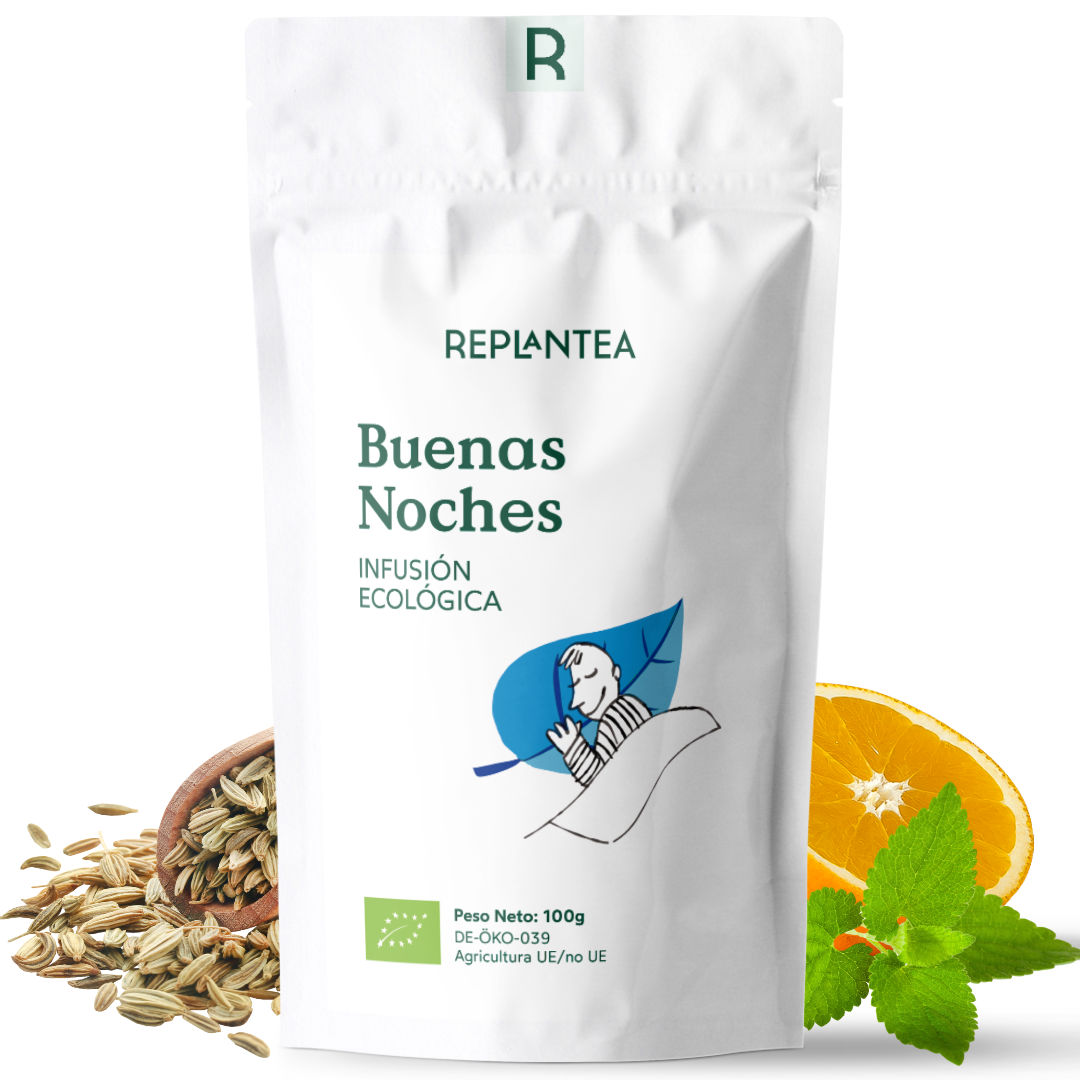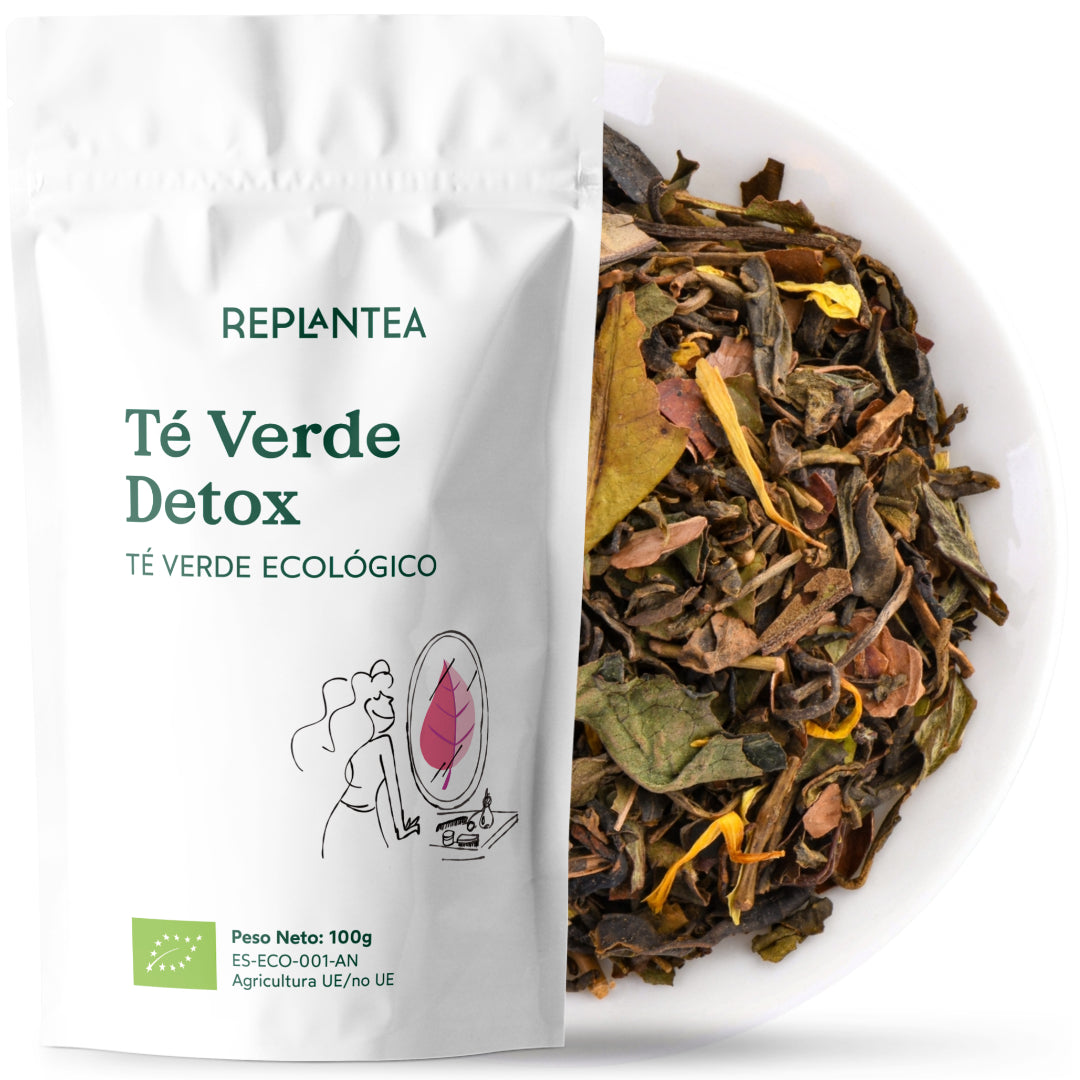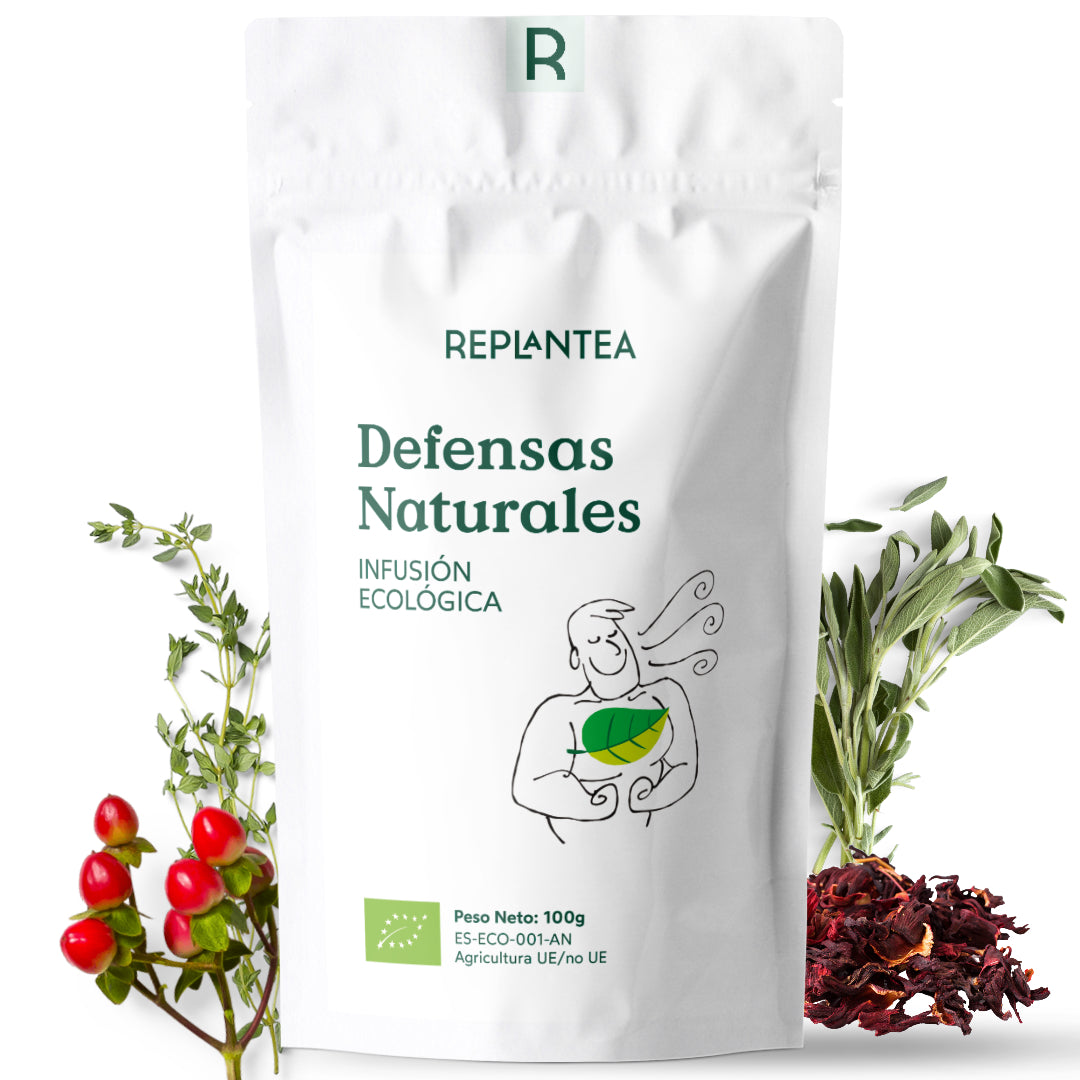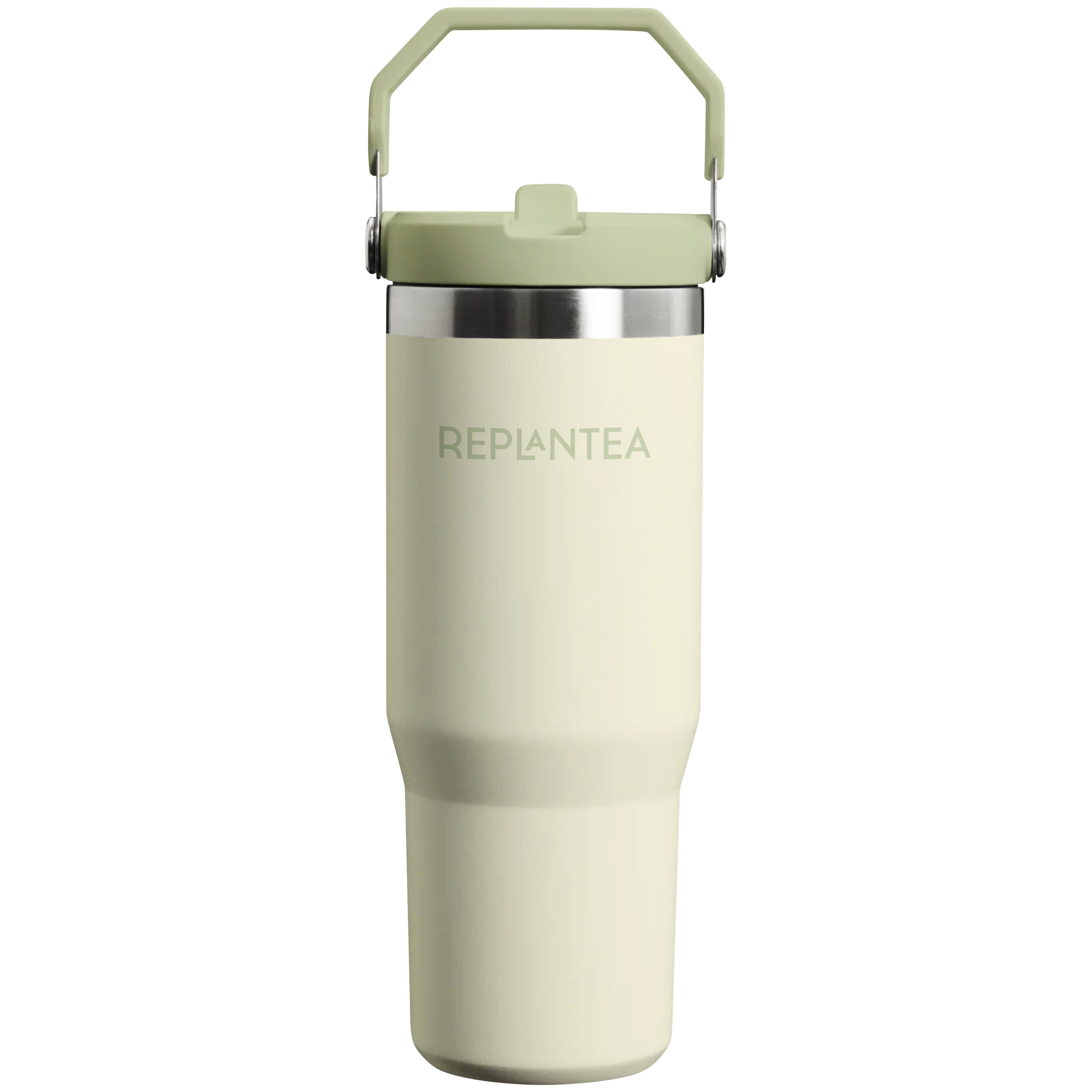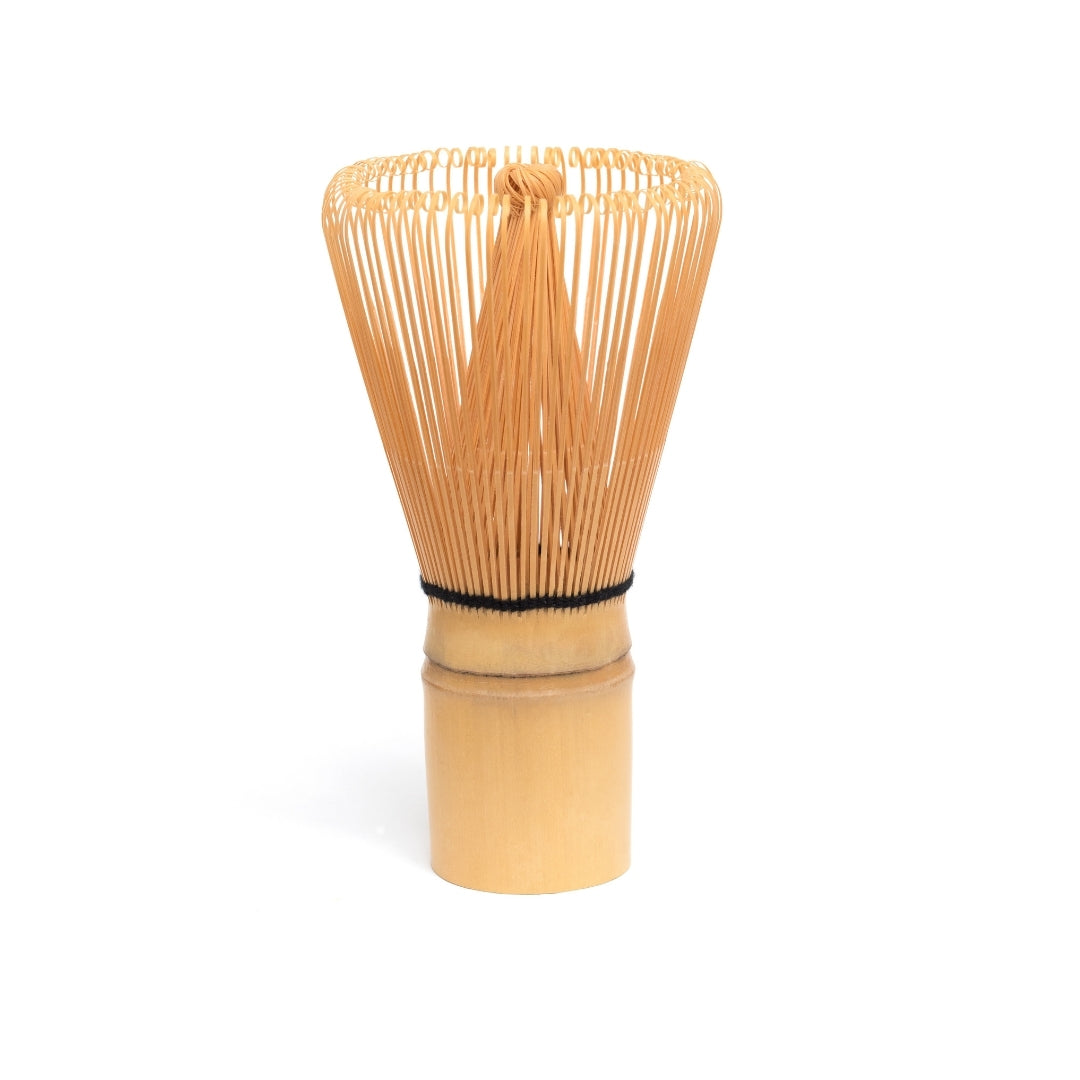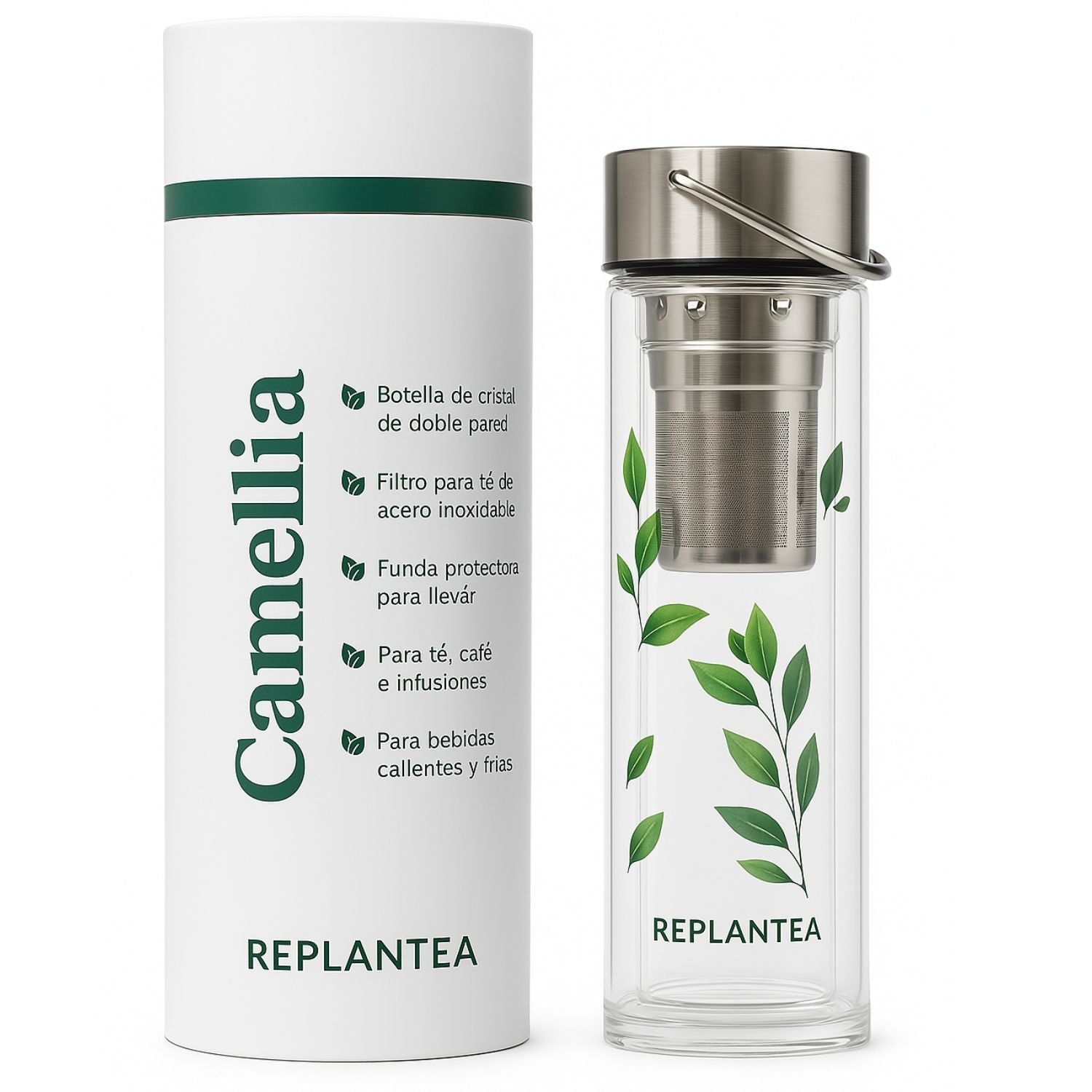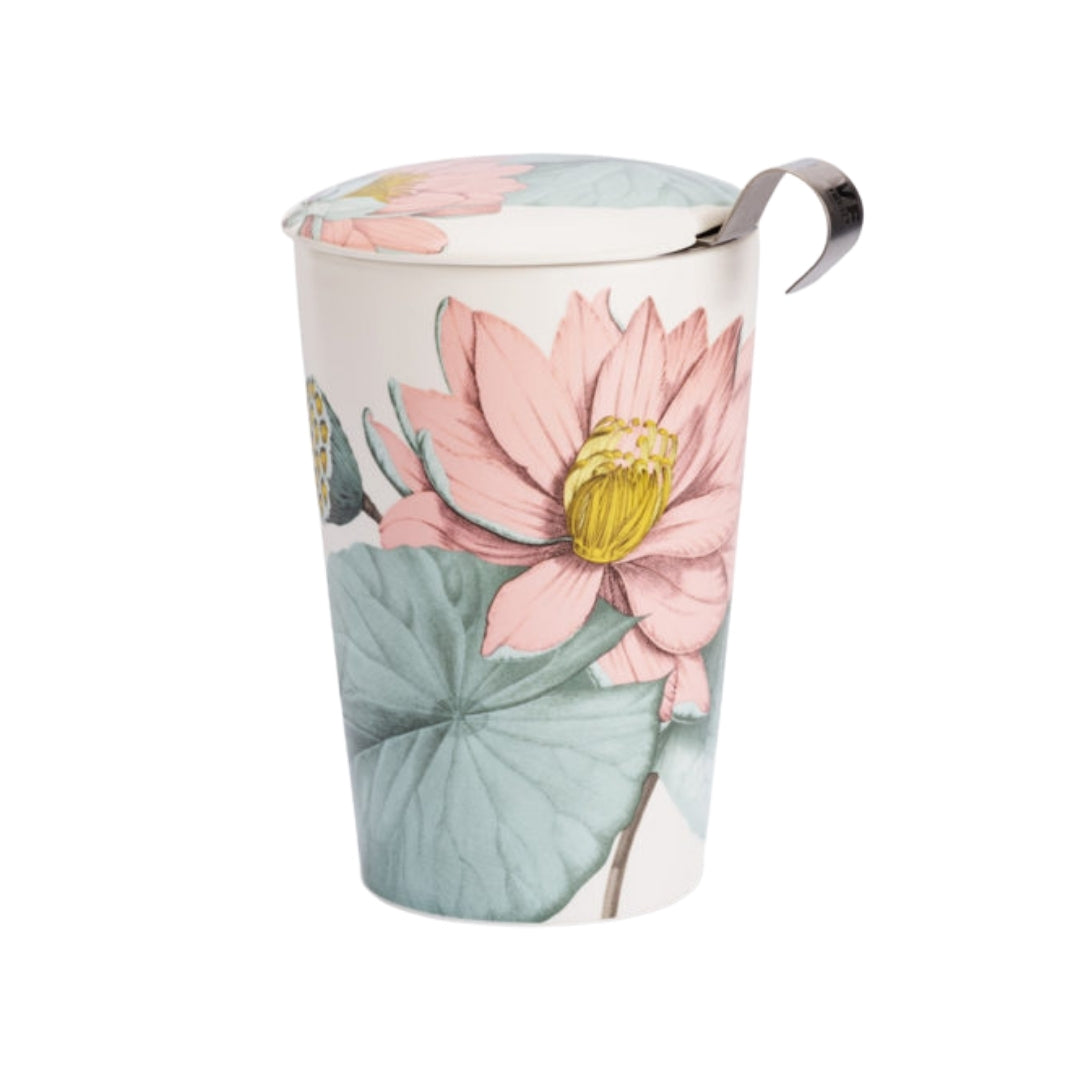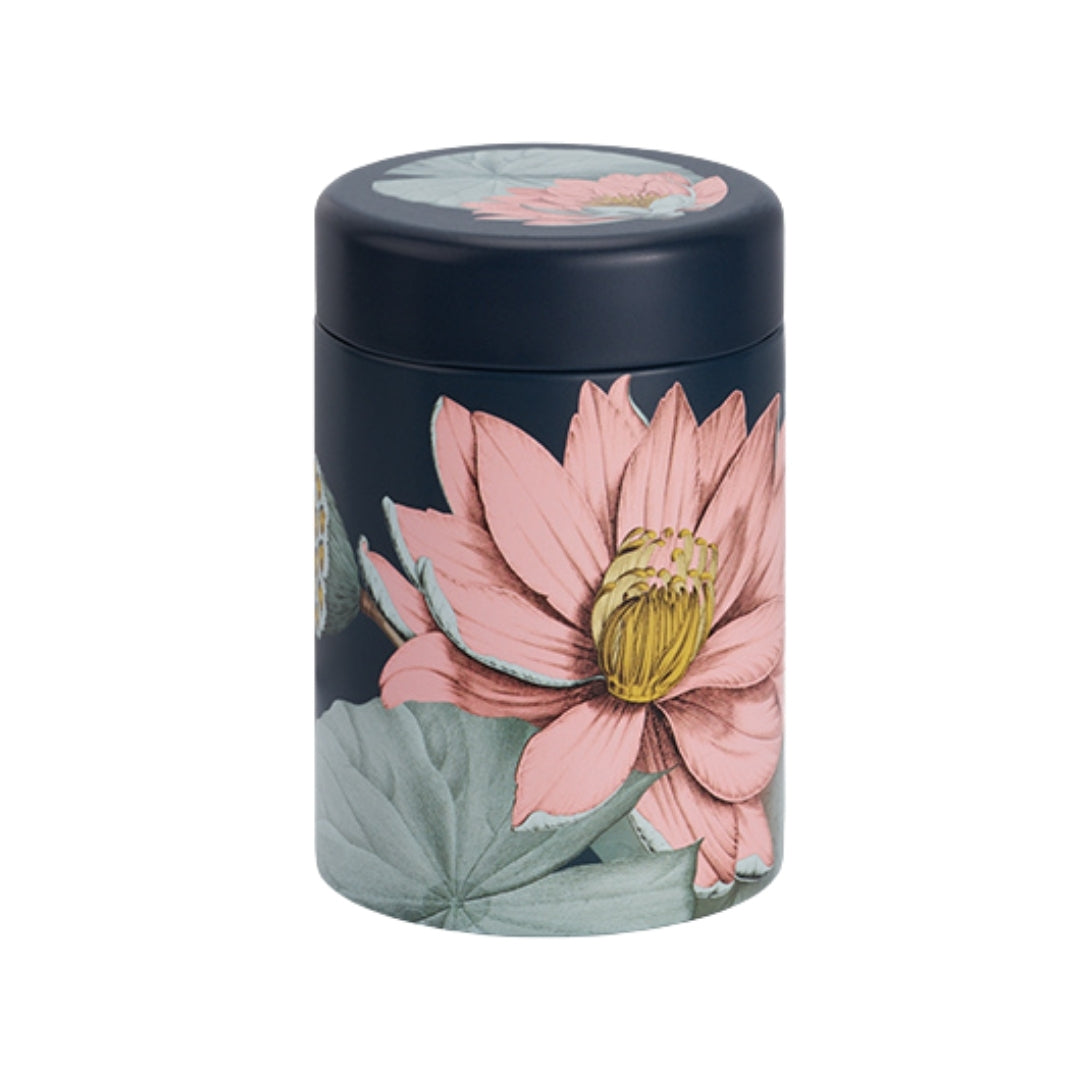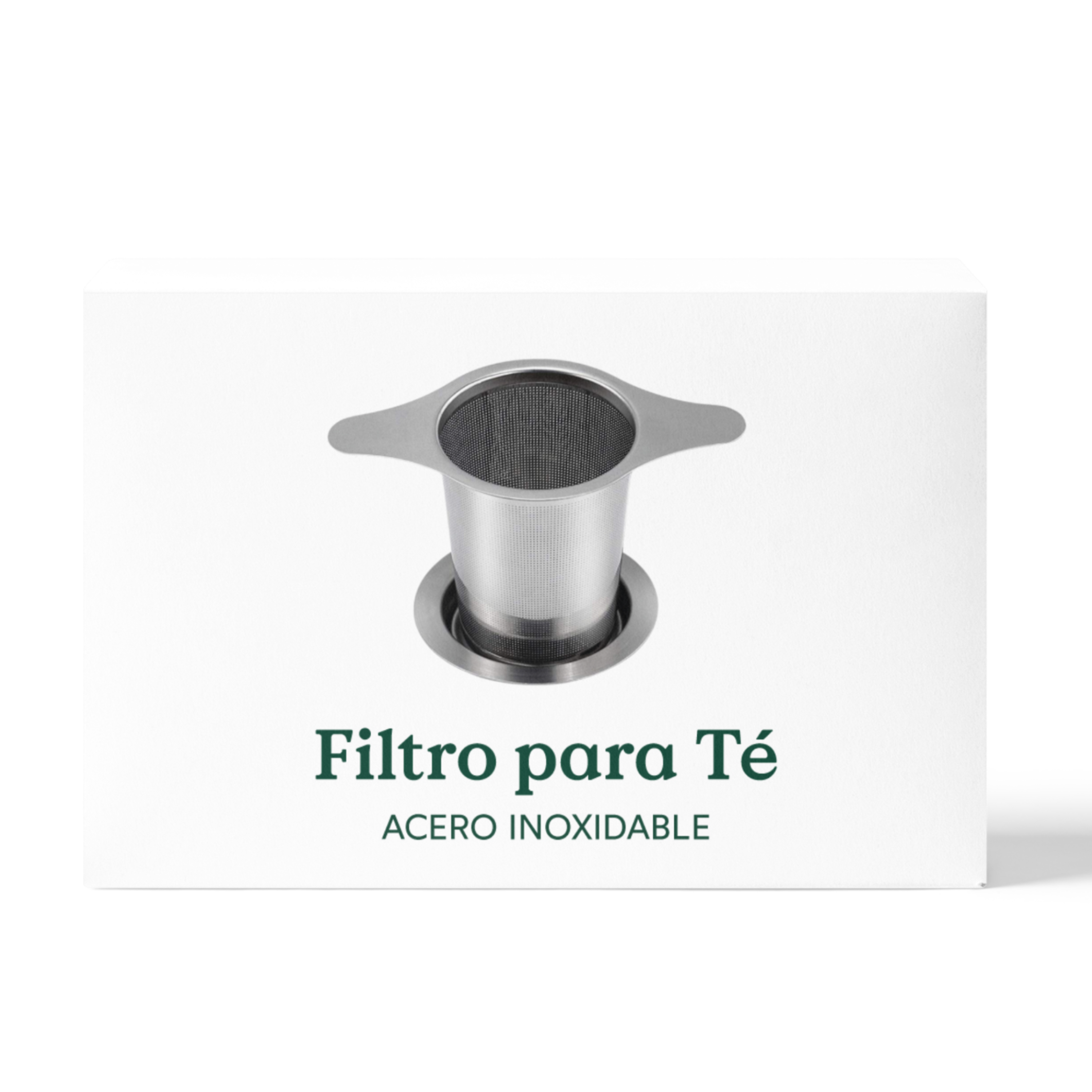Blog Replantea
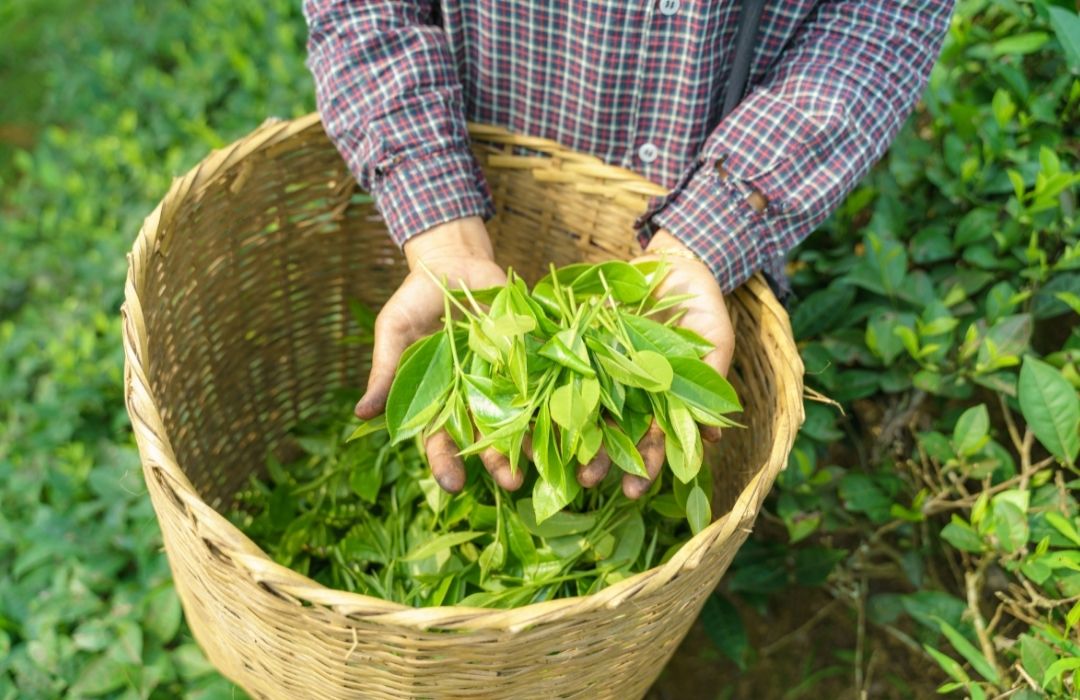
on Feb 20 2022
Did you know that most teas are picked from the plant and dried, without going through a washing process? That is, the first time the tea leaves are washed is in your cup.
Furthermore, many teas are grown in countries where pesticides and fertilizers are not as strictly controlled as they are in the European Union and Spain. For these reasons , at Replantea, we decided from the beginning to offer our customers only certified organic teas and infusions.
This way we ensure that our organic teas are free of potentially harmful chemicals.
Differences between organic tea and conventional tea?
Organic teas do not use chemicals such as pesticides, herbicides, fungicides, or chemical fertilizers to grow or process the tea leaves. Instead, farmers use natural processes to ensure a sustainable harvest.
In contrast, in conventional tea cultivation, farmers use various types of chemicals to increase the yield . Drinking tea grown with pesticides and processed with other chemicals can lead to a host of health problems. If you're reading this article, it's probably because you're concerned about your health, that of your family, and the environment.
Components of organic tea
For us at Replantea, organic tea should be a combination of tea leaves, herbs, fruits, spices, and, in some cases, a natural flavoring. The combination of these ingredients and the guarantee that each one is organic is what makes our teas truly organic.
Tea leaves: At Replantea, we source only the finest organic tea certified by the European Union, from the finest plantations in China, Japan, India, and Sri Lanka.
Herbs, fruits, and spices: In creating our blends, we source not only the finest organic tea, but also the freshest organic ingredients. Replantea extensively sources certified organic fruits, herbs, and spices worldwide.
Natural flavors: Many of the teas consumed in Spain are artificially flavored. The idea of blending the finest organic teas and other organic ingredients with artificially produced flavors simply doesn't make sense to us. For this reason, we only use natural flavors in our organic teas.
Organic certification
All our organic teas and organic infusions are certified by the European Union .
Why choose organic tea?
It's better for your health.
It's better for farmers.
It's better for the environment.
It tastes better.
Organic tea is better for your health
Synthetic pesticides are known to pose significant and recognized risks to human health , including birth defects, nervous system damage, hormone and endocrine disruption, respiratory disorders, skin and eye irritation, and several types of cancer. Herbicides have also been linked to certain types of cancer and Parkinson's disease.
Every year, new research demonstrates the toxicity of synthetic pesticides to human health , often at doses previously declared "safe" by the pesticide industry and governments. Many pesticides once permitted have since been banned, but in some cases, the damage persists. DDT continues to exist in the environment and in the cells of Europeans, 30 years after it was banned in Europe. In Norway, even five years after a complete ban on insecticide use, traces of it have been found in breast milk.
Drinking tea has great health benefits. For example, green tea is highly antioxidant-rich, and red tea is highly digestive. At Replantea, we believe it's much better to enjoy the natural benefits of tea without the harmful effects of pesticides and other chemicals . For this reason, we focus exclusively on organic teas.
Organic tea is better for farmers
Time and again, we see farmworkers in India, Sri Lanka, and elsewhere spraying their crops without using masks, gloves, or other protective equipment . Despite all the evidence to the contrary, many farmers consider these chemicals safe and even necessary. This is a shame because farmers are the first to be harmed by their decision to use chemicals to treat the land on which they work and live.
Organic tea is better for the environment
Conventionally grown tea is one of the most environmentally devastating crops in Asia . Because it is often grown at high altitudes, the chemicals applied on conventional tea farms not only damage the local ecosystem but also trickle down the mountains and hills to wreak havoc on other farms, forests, rivers, and even oceans miles away.
Many of the pesticides used in conventional tea cultivation contain excessive amounts of heavy metals, which not only appear in certain teas you can consume anywhere, but are also carried downstream to contaminate soil and water elsewhere . Meanwhile, fertilizers that are washed down the mountains cause overfertilization of other crops and plants, eventually killing many river and ocean species.
Organic tea tastes better
Non-organic or conventional teas are often air-dried without prior washing , which means synthetic chemicals dry into the leaves and can end up in your cup of tea. This can affect your health, as we mentioned above, but also the natural flavor of the tea.
Furthermore, some of these synthetic chemicals are designed to stimulate production . While these methods increase crop yield, they come at a cost to the quality of the tea produced.
An organic tea farmer uses more natural processes to create a sustainable yield . These methods are reflected in the tea's flavor and improved nutritional content.
Types of organic tea
Whether you enjoy your tea hot or cold, with or without milk, we're sure you'll find the Replantea tea that suits your tastes.
Organic White Tea | Organic Green Tea | Organic Matcha Tea | Organic Blue Tea | Organic Black Tea | Organic Red Tea or Pu-Er | Organic Rooibos | Organic Herbal Teas
Sources
- Robert E. Hodges, MD, The Toxicity of Pesticides and Their Residues in Food , Nutrition Reviews , Volume 23, Issue 8, August 1965, Pages 225–230
- Insecticides in Breast Milk , Nutrition Reviews , Volume 35, Issue 4, April 1977, Pages 72–73.
- Pauline Rebouillat, Rodolphe Vidal, Jean-Pierre Cravedi, Bruno Taupier-Letage, Laurent Debrauwer, Laurence Gamet-Payrastre, Mathilde Touvier, Mélanie Deschasaux-Tanguy, Paule Latino-Martel, Serge Hercberg, Denis Lairon, Julia Baudry, Emmanuelle Kesse-Guyot, Prospective association between dietary pesticide exposure profiles and postmenopausal breast-cancer risk in the NutriNet-Santé cohort, International Journal of Epidemiology , Volume 50, Issue 4, August 2021, Pages 1184–1198.
- Sharon K Sagiv, Katherine Kogut, Kim Harley, Asa Bradman, Norma Morga, Brenda Eskenazi, Gestational Exposure to Organophosphate Pesticides and Longitudinally Assessed Behaviors Related to Attention-Deficit/Hyperactivity Disorder and Executive Function , American Journal of Epidemiology , 2021.
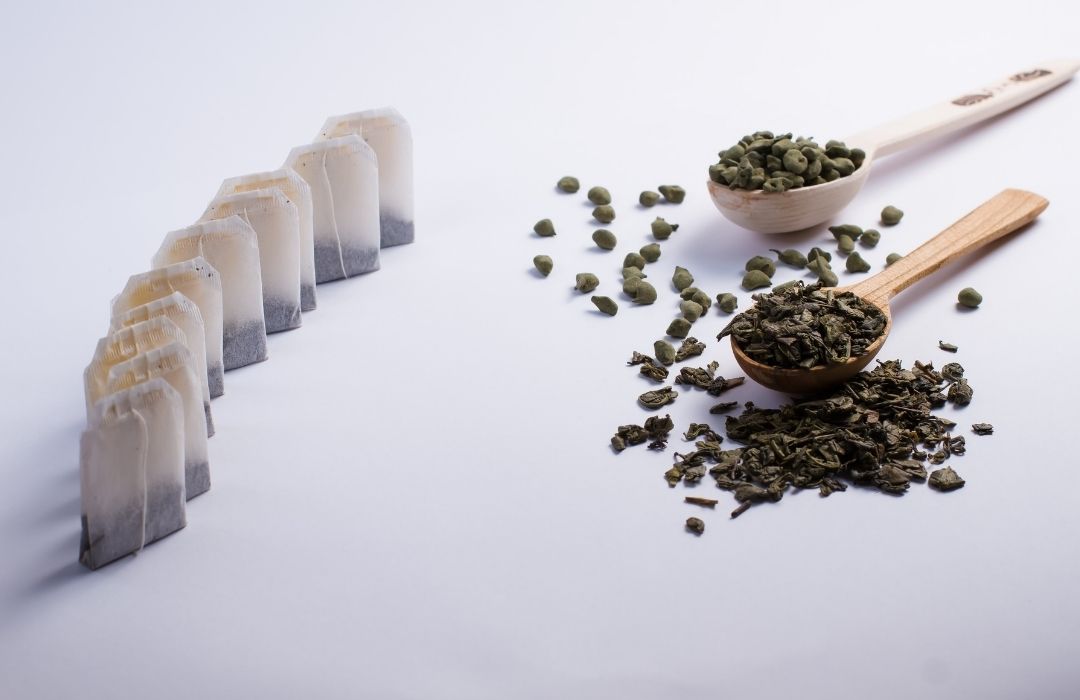
on Feb 04 2022
Almost all tea lovers begin their journey with tea bags. Not only can they be found everywhere, but they're also very convenient. If you become a tea drinker by trying tea bags, at some point you'll also want to try loose-leaf tea. And that's where, for most tea lovers, all the magic begins. What's the difference between loose tea and tea bags?
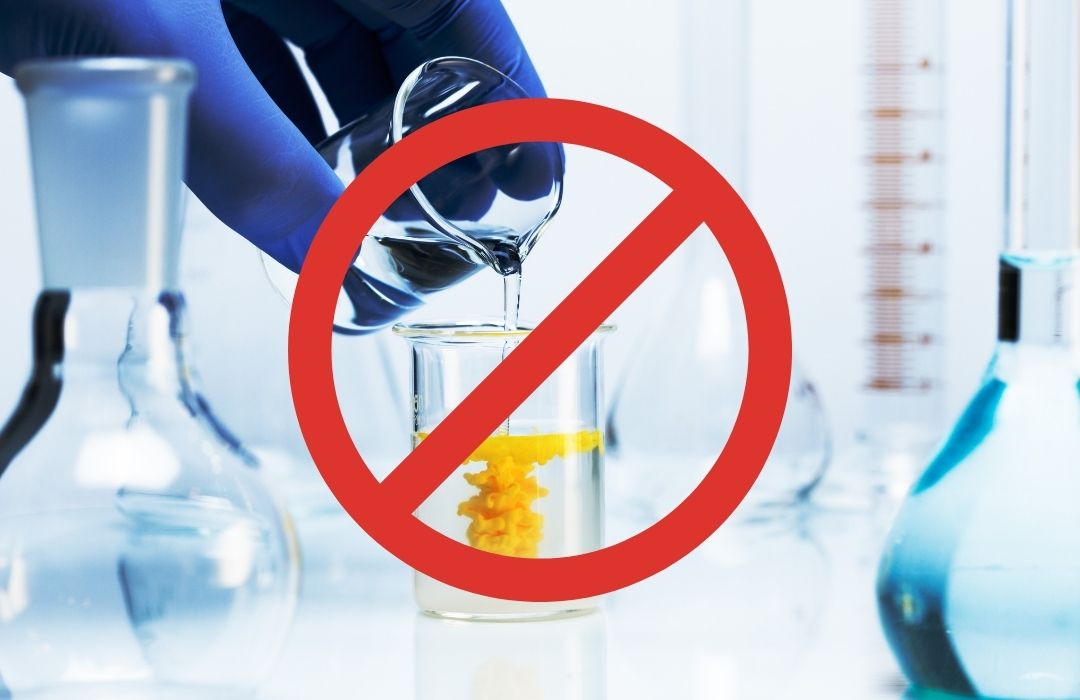
Ingredients we don't use at Replantea
on Jul 16 2021
Did you know that 85% of the more than 80,000 chemicals used on the market today have not been evaluated for their long-term impact on our health? At Replantea, we believe that if we're not sure an ingredient is safe long-term, it's best not to use it.
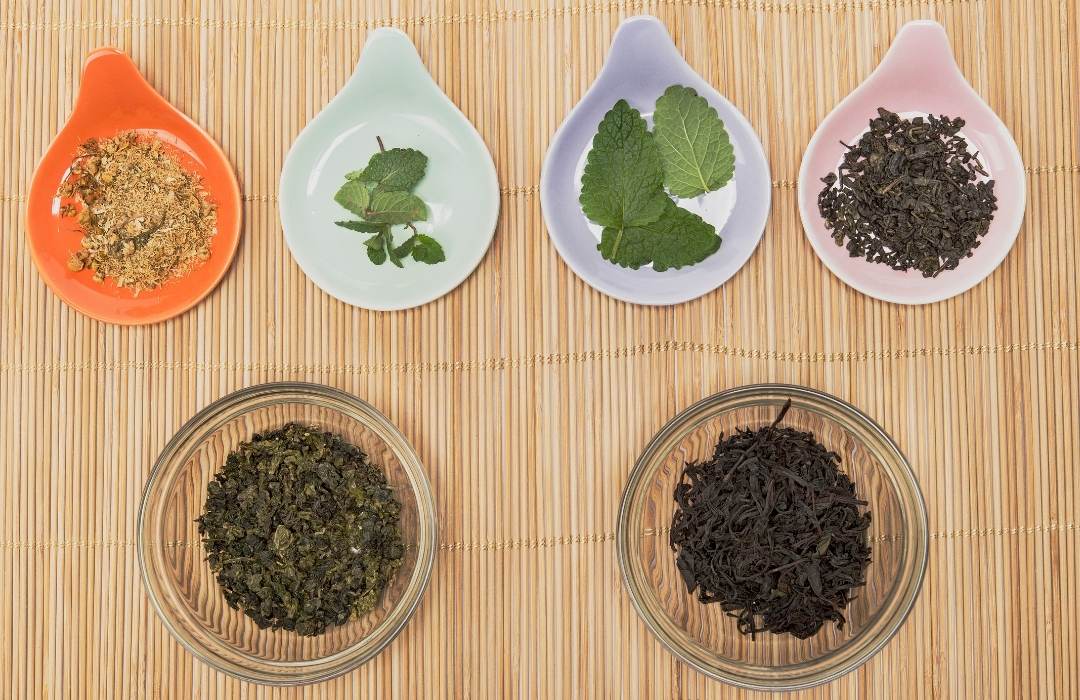
Ingredients we do use in Replantea
on Jul 15 2021
Replantea's goal is to care for people while we care for the planet and the other living beings that inhabit it. That's why we're fully committed to using natural and sustainable ingredients. Here you can get a more complete idea of the ingredients you'll find in our products.

